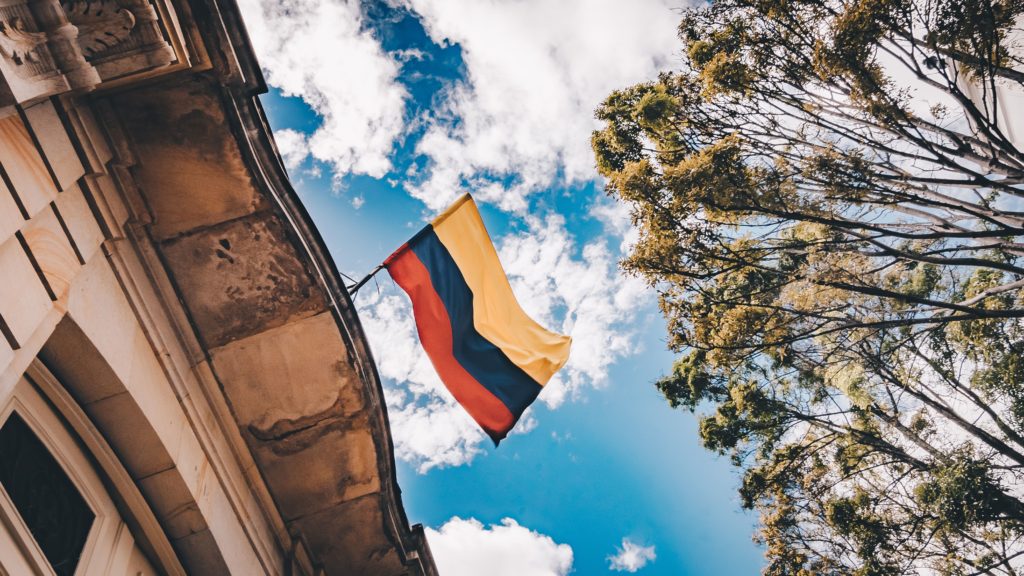Are you considering bringing your company to South America? The Colombian investing market presents many opportunities that are just waiting for you to seize.

The gross national product (GDP) of Colombia has increased significantly over the past few decades, with growth never falling below 2 percent since 2001 and reaching $323.6 billion (all values in USD) in 2019. In contrast, Colombia’s gross national income (GNI), a crucial measure of prosperity, reached $6,510 per person that same year, placing it among upper-middle-income nations by World Bank standards.
Anyone looking for business ventures or investment opportunities in Colombia will find that there are plenty of intriguing and developing industries to choose from. New industries are emerging, and old industries are expanding within their markets because of Colombia’s expanding middle class and the corresponding expenditure. Colombia is well-known for its coffee and gold mining, but you might be surprised to learn that the country has many other interesting industries to invest in.
If you participate in the Colombian market and believe that an examination and revision of your interests would be beneficial, continue reading to learn more about the many investment industries in Colombia.
Some of the business opportunities worth looking out for
Here are some of the business opportunities you can explore.
Mining
Coal, gold, and emeralds are the three commodity groups that make up Colombia’s mining industry. The business had a setback in the middle of 2016 because of rapidly falling worldwide prices, but things are now looking up, with Trading Economics projecting a growth of 12.336 COP billion by 2020. This sector is a particularly good investment because the Colombian government actively promotes foreign investment in the mining industry and permits foreign firms 100 percent ownership of mining titles and companies, the corporate tax dropped from 33 percent to 30 percent, and President Duque’s promised spending on infrastructure.
Cannabis
The legalization of medical and scientific purposes occurred in August 2017. The Ministry of Health and Social Protection issues licenses, which vary depending on the type of seeds, the type of manufacturing process, and the target market.
According to projections, the global cannabis market will be worth US$43 billion in 2025, with Colombia accounting for US$43.000 million of that total. North American pioneers in the business have drawn overseas investments because of this anticipated rise in the medical cannabis market. Colombian companies have a significant competitive edge due to the low cost of medicinal cannabis production and cultivation options.
Products made from medical cannabis are already exported to several countries. The 214 firms that registered to get a license at the end of 2018 are evidence of how appealing and advantageous this new legislation is.
Technology
Colombia is the third-largest Latin American provider of IT services, with software and IT-related services accounting for 1.19 percent of Colombia’s gross domestic product (GDP). Many tech start-ups getting international funding are in Medellin, in particular. Rappi, a software firm from Colombia that is quickly growing to other LATAM nations, is one of the best instances of a successful digital company. Rappi now allows employees to perform services like dog walking and even withdrawing cash from the ATM in addition to offering an online marketplace with a variety of stores that deliver right to customers’ doors.
Cosmetics
The fourth-largest market in Latin America for cosmetics is Colombia, and it was expected to expand by 11.6 percent by 2020. The market in Colombia is presently worth USD 3.1 billion. Men are also purchasing more specialized items, which expands the target market in addition to women’s increased demand for higher-end and natural products. The Latin American market with the greatest per capita consumption of skincare goods is Colombia. Many foreign companies, like L’Oréal and Belcorp, are setting up product centers in Bogotá because the city accounts for nearly 50% of all cosmetic sales and production. This is done to reduce the distance between businesses and consumers. Opportunities exist in the market for natural products, which is still developing despite the increase in demand, and in the color cosmetics sector, which is the fastest growing in the global cosmetics business. Entrepreneurial enterprises can concentrate on fitting the wants of the consumers into their product range because generally women are becoming more interested in DIY treatments instead of salon ones. Direct sales and in-store distribution account for the most current distribution. However, the use of e-commerce is expanding, giving the conventional method of selling some competition.







